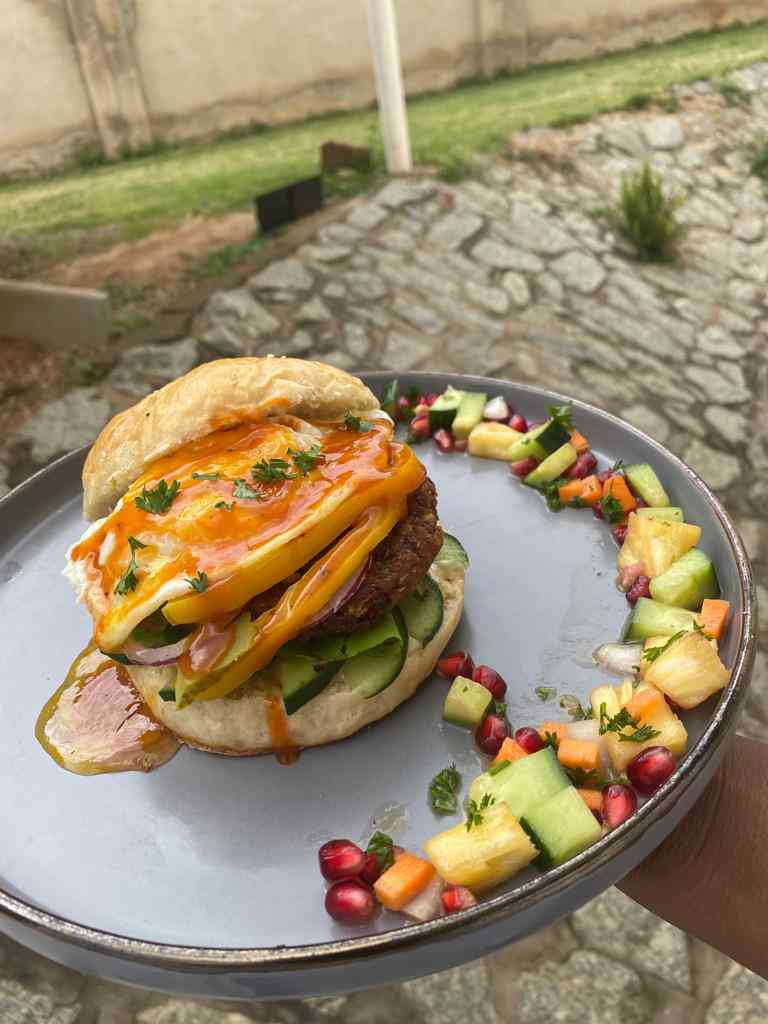
THIS is my first column, and I am beyond excited to share with my fellow Zimbabweans about the culinary world of today. I will share my opinion about food and some of the elements involved in eating it; primarily, today we will discuss why food is life.
Expect to see new exciting recipes, including my favourite indigenous gourmet and recipes, honest food reviews, and a showcase of Zimbabwe's food scene and how best they handle quality, taste, pleasure, misery, money, how to do-it-yourself, and anything else related to the necessity of eating and the impact food provides.
It is my belief that, while there is no accounting for taste, there is definitely an accounting for quality, and I will do my best to consider the two separately.
Food is life
Food is not only a basic human need, but it also has cultural and social implications. Food is one of the things that defines us as human beings, as it reflects our heritage, traditions, and environment.
Therefore, food is not only essential for our survival, but it also enriches our lives, brings people together, and creates memories that last a lifetime.
In today's world, food has become more than just sustenance. It has also become a form of entertainment, an artistic expression, and a lifestyle.
People are more conscious of what they eat, where it comes from, and how it affects their health and wellbeing. Food has also become a source of pleasure, where people seek new tastes, textures, and aromas to stimulate their senses.
- The gods must be crazy
- Mnangagwa mourns Major-General Nyathi
- Five awarded hero status
- Draw derails DeMbare
Keep Reading
One of the best ways to enjoy food is by sharing it with others. Eating together creates a sense of community and fellowship that is invaluable. It is a time when people come together, relax, share stories, and enjoy each other's company.
Whether it is a family dinner, a romantic date, or a gathering with friends, food is a common denominator that brings people closer.
Another way to enjoy food is by being open-minded and trying new things. Food is not only about comfort and familiarity; it is also about exploration and discovery.
There are so many different cuisines, ingredients, and preparation methods that it would be a shame not to try them. Being adventurous with food opens up a whole new world of possibilities and can be a source of great excitement and satisfaction.
When it comes to making the most of our culinary experiences, there are a few tips that can make a difference. Firstly, it is essential to eat mindfully and savour the flavours.
Too often, we rush through our meals without paying attention or really tasting what we are eating.
Taking the time to appreciate the flavours, smells, and textures of food can enhance our enjoyment and deepen our appreciation for it.
Secondly, it is crucial to eat with all our senses.
The way food looks, smells, and sounds can be just as important as how it tastes. A beautifully presented dish, the aroma of freshly baked bread, or the sound of sizzling meat can all add to the overall experience.
Finally, it is important to be grateful for the food we have. In our fast-paced world, we often take food for granted and forget how lucky we are to have access to a variety of fresh, nutritious, and delicious foods.
Taking a moment to appreciate the hard work that goes into producing, preparing, and serving food can help us develop a greater sense of gratitude and respect for it.
In conclusion, food plays a vital role in our lives, and it is not only important for our health but also for our happiness and wellbeing.
Sharing food with others, being open-minded, and savouring the flavours are all ways to enjoy food to the fullest.
Remembering to eat with all our senses and being grateful for the food we have are also important aspects of making the most of our culinary experiences.
So next time you sit down for a meal, take a moment to appreciate all that food has to offer and enjoy it to the fullest.
Now tell me, what is a good or bad food-related memory that greatly impacted you?
- Muzamhindo is a young chef with seven years’ experience in a professional kitchen and has enjoyed the concept of food since the tender age of two. She studied at the South African Chefs Academy in Cape Town and the Culinary Arts Academy in Zimbabwe to become a level three advanced chef. Her specialties range from indigenous ingredients to fine dining, gourmet food, food health and safety and food research and development. — [email protected].











